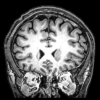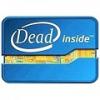There is very little known about these two substances (which are extracted from the same Chinese herb) in the Western world but it has been in clinical use as a treatment in China for decades (more than 40 years). The Western pharma has recently shown greater interest in these two compounds (and to date only have conducted just a few trials on humans with quite good results) for the treatment of Schizophrenia, Alzheimer's and cocaine/heroin addiction.
It doesn't say much but here are the wiki's:
Mechanism of action of L-Tetrahydropalmatine:
Pharmacological actions at D1, D2, D3 dopamine and other receptors
Primarily through the efforts of Chinese scientists, most notably led by Dr. Jin Guozhang, a researcher at the Shanghai Medical Institute, much has been learned about the pharmacological profile of l-THP. A large body of evidence suggests that l-THP binds to D1 and D2 dopamine receptors [10-12]. In contrast to other THPB derivatives, which have partial agonist effects at the D1 dopamine receptor, l-THP is an antagonist at both of these receptors as defined according to its minimal stimulation of cAMP production in D1 receptor-expressing HEK cells relative to dopamine ([13] and Mantsch, unpublished results) and lack of D2 receptor-mediated mitogenic effects. The Ki values for l-THP at D1 and D2 dopamine receptors are approximately 124 nM (D1) and 388 nM (D2), while the IC50 values are 166 nM (D1) and 1.4 μM (D2), respectively (Table 1). The relatively high affinity of l-THP at D1 vs. D2 receptors, distinguishes it from other available dopamine receptor antagonist drugs (e.g., haloperidol). Although l-THP lacks high affinity for these receptors, pharmacokinetic data suggest that brain concentrations of l-THP that are reached following administration of clinically relevant doses are more than sufficient for occupancy [14]. L-THP also binds to the D3 dopamine receptor ([13] and see Table 1). Considering that the D3 receptor has been identified as a target of interest for medications aimed at preventing relapse, blockade of D3 receptors could contribute to the putative utility of l-THP as an anti-addiction agent [15]. However, the affinity of l-THP for the D3 receptor is considerably lower (1.4 μM) than for D1 and D2 receptors, and the IC50 is close to 3.3 μM. Thus, the ability of l-THP to antagonize D3 receptors at clinically relevant doses is unclear. In addition to the antagonism of post-synaptic dopamine receptors, the blockade of pre-synaptic autoreceptors by l-THP results in increased dopamine release [16], and it has been suggested that lower affinity of l-THP for D2 receptors may confer some degree of autoreceptor selectivity [16, 17].
Along with dopamine receptors, l-THP has been reported to interact with a number of other receptor types, including alpha-1 adrenergic receptors, at which it functions as an antagonist [18], and gamma-aminobutyric acid (GABA)A receptors, at which it facilitates GABA binding through positive allosteric effects [19]). Additionally, l-THP displays significant binding to 5-HT1A and alpha-2 adrenergic receptors (Table 1). In the case of 5-HT1A receptors, l-THP binds with a Ki of approximately 340 nM and has an IC50 of approximately 370 nM, concentrations that are likely exceeded in the brain following administration of l-THP doses that are active in animal models.
More compact info of L-THP and schizophrenia written by a schizophrenic blogger.
Mechanism of action of L-Stepholidine (in schizophrenia):
Based on the sedative-tranquillizing effect of l-THP, Professor Jin started a pioneer work of THPBs acting on dopamine receptors in the brain. Among THPBs, he has discovered l-stepholidine, isolated from Stephania intermedica LO, to possess dual dopamine D1 agonist and dopamine D2 antagonist actions. It means that l-stepholidine simultaneously acting on D1 and D2 receptors exhibits both inverse effects on different targets. That is a novel neuropharmacological action. Moreover, he found that the dihydroxy groups in the structure of l-stepholidine is the intrinsic chemical elements to contribute the dual actions and become the key factor in pharmacological creativity. Furthermore, the dual actions are not only found in l-stepholidine but also in the other dihydroxy-THPBs. l-Stepholidine is mere a leading compound of them. In other words, the unique characteristics of dual actions only belong to the dihydroxy-THPBs up-to-dately. More interestingly, the dual actions of l-stepholidine have the selective action targets in the brain, matching with a new hypothesis of schizophrenia pathogenesis. Its D1 agonist action selectively acts on the medial prefrontal cortex (mPFC), while its D2 antagonist action selectively on subcortex, such as nucleus accumbens and ventral tagmental area (VTA). This unique dual actions just match with the dysfucnction of D1 receptors is in the mPFC of schizophrenia patients and the hyperfunction of D2 receptors in the subcortex structures of patients. l-Stepholidine now is a first one of potential novel antipsychotic drug with dual D1 agonist and D2 antagonist actions on DA receptors. The role of the dual actions first discovered in DH-THPBs from traditional Chinese herbs, would lead more attractive compounds emerged.
Study's with L-Stepholidine in schizophrenia.
This one is quite interesting: The Neuropharmacology of (-)-Stepholidine and its Potential Applications
7.1. SPD for the Treatment of Schizophrenia
Schizophrenia is a chronic, devastating mental disorder. It is characterized by the presence of both negative and positive symptoms. Schizophrenia is the most serious of all psychiatric illnesses and affects about 1% of the world's population, but the etiology of schizophrenia remains obscure. According to recent clinical and experimental studies, the cause of schizophrenia may involve an imbalance of cortical/subcortical DA systems. Specifically, hyperactivity of D2 receptors in subcortical mesolimbic regions, such as the NAc, may produce the positive symptoms of schizophrenia, while hypofunction of D1 receptors in the mPFC is considered to be responsible for the negative symptoms and cognitive impairment [9, 14, 55].
D1 and D2 receptors have important functional interactions (see section 2). However, these interactions were abnormal in over half of the postmortem striata from schizophrenic patients, suggesting an impaired functional linkage between D1 and D2 receptors in schizophrenic patients [57]. Therefore, the restoration of normal, functional linkage between D1 and D2 receptors may be an effective strategy for the treatment of schizophrenia.Before atypical neuroleptics were discovered, clinical doses of the available antipsychotic drugs primarily blocked D2 receptors [13, 56], but unfortunately they were less effective at PFC D1 receptors. As a result, a large proportion of schizophrenic patients did not show adequate relief from their negative symptoms [1]. However, even with the development of atypical neuroleptics, most of them display only very small D1 agonistic effects on the PFC D1 receptor. Therefore, there is an urgent need to develop an agent that exerts both D1 agonistic and D2 antagonistic effects, which should more effectively restore synergism between D1 and D2 receptors and alleviate both the negative and positive symptoms of schizophrenia. SPD possesses these characteristics and may serve as a novel, promising agent for schizophrenia therapeutics.
Clinical trials are currently testing the potential use of SPD as an antipsychotic drug. Co-administration of SPD and typical antipsychotic drugs (e.g., phenothiazines or butyrophenones) could significantly enhance the effectiveness of drug therapy for mental disorders. In addition, SPD alone has been shown to exhibit a significant therapeutic effect. Furthermore, a double-blind comparative study demonstrated that SPD not only improved the positive symptoms of schizophrenia, but also significantly alleviated the negative symptoms compared to perphenazine, a common drug prescribed for schizophrenic patients [36, 37, 74]. Recently, experiments have also demonstrated that SPD exerts its antipsychotic-like effects in a schizophrenic animal model with few extrapyramidal side effects [18]. The promising therapeutic effects of SPD probably are the result of its dual D1 agonistic and D2 antagonistic effects, which can potentially reverse hyperactivity of D2 receptors in subcortical mesolimbic regions and restore normal function of D1 receptors in the mPFC, thus restoring normal, functional linkage between D1 and D2 receptors.
Recent developments in studies of l-stepholidine and its analogs: chemistry, pharmacology and clinical implications.
The antipsychotic potential of l-stepholidine--a naturally occurring dopamine receptor D1 agonist and D2 antagonist.
Preclinical Research - Effects of l-Stepholidine on Forebrain Fos Expression: Comparison with Clozapine and Haloperidol (Didn't quite understand this one but I'm just not that smart as some of you guys)
I'm sorry for the layout of this post, I'm kinda disorganized and didn't know how to present it more clearly. However, the reason I'm posting this is is because I'm able to get these compounds cheaply from Chinese chem-labs and trial them. But before I do so, I would like your guys opinion/thoughts about these two compounds. Especially about L-Stepholidine, according to the research, L-Stepholidine is able to balance D1 (by being a potent dopamine agonist and treating negative symptoms) and D2 (as a antagonist and treating positive symptoms). This unique mechanism of action is not seen in any available antipsychotic.


















































